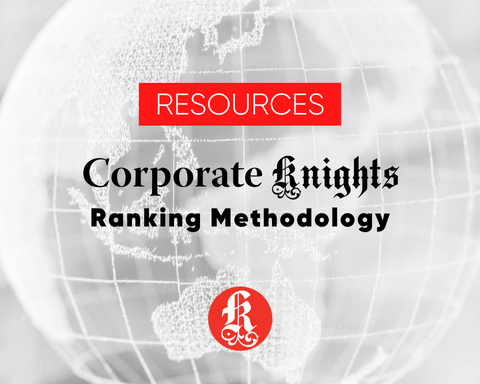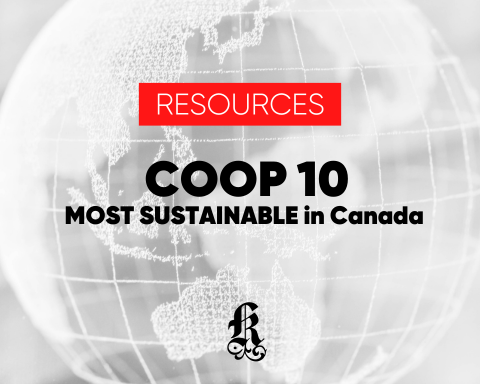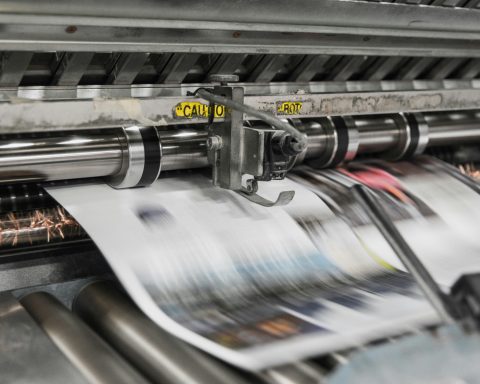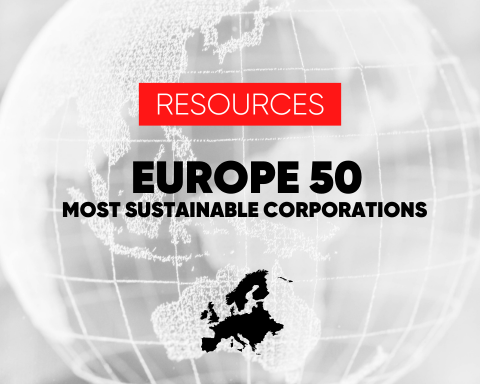Corporate Knights’ Sustainable Economy Intelligence provides business leaders and investors with the information they need to align their business strategies and portfolios with the opportunities in sustainable production that are driving global economic growth. By quantifying corporate revenues and expenditures that align with the sustainability transition, our data and analytical products provide our clients with the highly granular, internally consistent and comprehensive information they need to make the choices that will keep them on the leading edge of the global trend toward a sustainable economy.
Purpose. The purpose of the Corporate Knights Sustainable Economy Taxonomy (CKSET) is to accelerate the transition to a low-carbon, sustainable economy by providing an integrated global standard for identifying and quantifying company revenues and investments that are aligned with a sustainable economy, broadly defined as an economy in which the UN Sustainable Development Goals are achieved.
Scope. All economic activity that takes place anywhere is within the scope of CKSET. At Corporate Knights, CKSET has been applied to the products and services of more than 3,000 companies, including the companies in the MSCI ACWI, with data from 2019 forward to create a database of sustainable revenue and investment with more than 40,000 records. Sustainable investment includes capital expenditures, research and development, and acquisitions. A growing number of global companies use CKSET for their internal sustainability assessments and strategic planning analyses.
Organizing framework. CKSET defines sustainability using an easy-to-navigate, hierarchical framework consisting of nine top tiers and 85 secondary tiers covering all types of economic activity. Sustainable revenue and investment can be identified by any company for any tier of the economy, regardless of the company’s industrial classification.
Compatibility. CKSET adopts design principles and specific benchmarks from other taxonomies, including the EU taxonomy for sustainable activities, the Climate Bonds Taxonomy, the Taxonomy Roadmap of the Canadian Sustainable Finance Action Council and others. Corporate Knights maintains a watching brief and incorporates innovations from climate and sustainability taxonomies from around the world that are under development or in the field. For the EU taxonomy, a detailed concordance is maintained that specifies line-by-line alignment with CKSET, allowing data prepared for EU taxonomy reports to be incorporated into CKSET’s broader, global scope.
Limitation. CKSET defines products and services that are sustainability-aligned, but it does not include an assessment of the environment, social and governance (ESG) performance of the companies generating the sustainable revenue and investments. To evaluate ESG and other risks, CKSET should be used in concert with other evaluation and screening tools. At Corporate Knights, use of CKSET to identify sustainable investment and sustainable revenue is integrated into our Global 100 Methodology for systemically evaluating company sustainability against ESG key performance indicators and “red flag” screens for egregious corporate behaviour.
Design principles. A set of design principles and guidelines serves as a reference for the development of definitions and benchmarks incorporated in CKSET.
- Best available technology. CKSET sets the gold standard for sustainable products and services by establishing science-based definitions and benchmarks for the highest possible level of alignment with a sustainable economy operating within planetary limits. Products and services that are misaligned with this objective are excluded from the taxonomy altogether, and for all others the starting point for defining alignment is “best available technology” that avoids carbon lock-in that is incompatible with science-based pathways for avoiding climate change exceeding 1.5 to 2°C.
- Sustainability alignment. While the taxonomy puts forward definitions for what constitutes “sustainable” products and services, no specific technology or service offering is sustainable. Sustainability is an emergent property of the whole economy, and as such the best one can do in evaluating products, processes and services is to identify characteristics of those products, processes and services that are aligned with the achievement of a sustainable economy.
- Pragmatic. There are few if any products or services that are perfectly aligned with sustainability, and so the selection of benchmarks and definitions requires setting priorities and accepting compromises. Given the immediacy of the climate emergency, there is a tendency to emphasize the greenhouse gas emission profile in establishing benchmarks, but CKSET endeavours to take a holistic approach to sustainability and covers social dimensions as well. The energy component of a sustainable economy, for example, would comprise highly efficient and convivial technologies matched in scale and quality to human energy needs that run on renewable energy; that generate no greenhouse gas emissions, no air or water pollution, no toxic or radioactive waste, and no waste heat; that protect and enhance biodiversity; that fail safely; that are manufactured under healthy working conditions with no forced labour; that distribute costs and benefits equitably among the current population and between the current and future population; that create no geopolitical risks; and that are 100% recyclable. Clearly, a working tool like CKSET with the goal of accelerating adoption of best practices must take a pragmatic approach to defining the standards by which products and services in the energy sector are deemed “sustainability aligned.”
- Versatility and flexibility. Different types of economic production contribute to the sustainability transition in different ways, and this requires flexibility in the approach to the definitions and benchmarks that recognizes the issues that are material to sustainability for different types of economic activity. For electricity, energy- and resource-intensive primary products, agricultural and forestry products, and minerals, the emphasis is on the production footprint. For buildings, vehicles, equipment and infrastructure, the emphasis is on the footprint of the products. For products such as telecommunications and information technologies, the emphasis is on the extent to which they facilitate sustainability. For products and services that reduce consumption (e.g., energy efficiency, recycling, light-weighting and right-sizing, logistics innovations), the focus is on the extent to which they eliminate unsustainable production. For
insurance and financial products, the emphasis is on the enabling of sustainable loans, investments and advisory services. - Radical transparency and verification. Radical transparency is a Corporate Knights core value. Data are provided with documentation of sources, methods and assumptions. Data used to qualify revenue and investments as aligned with CKSET must be available to Corporate Knights for independent verification. No imputed data is included in CKSET; all data is real and verified.
- Use of certifications. Corporate Knights reviews hundreds of product certifications and accepts some of them as evidence of sustainability-aligned production. To be considered, a certification must have a fully disclosed, credible and stringent methodology; must require third-party verification; must require continuous requalification (preferably annually); must cover both outcomes and production processes; and must have a multi-stakeholder governance structure to guard against greenwashing. Certifications that pass all five of these screens are then assessed for whether they reflect sustainability-aligned production, and if so whether the certified production is counted as 100% sustainability-aligned or discounted.
- Sustainable revenue versus sustainable investment. Whereas capital expenditures on any of the products defined as sustainability-aligned in CKSET qualify as sustainable investment, the ownership of sustainable products defined in the taxonomy does not necessarily lead to qualified sustainable revenue unless those products are central to the value creation of the business. For example, capital expenditures on emission-free vehicles qualify as sustainable investment, but owning emission-free vehicles does not result in qualified sustainable revenue except for companies in the business of providing passenger mobility or freight delivery. Similarly, if any business invests in a sustainable building, it qualifies as sustainable investment, but a business does not qualify to claim sustainable revenue by virtue of owning or occupying a sustainable building except for the hotel and accommodation industry or businesses that lease or manage real estate.
- Supply chains count. All products and services that form part of the supply chain for sustainability-aligned products and services also qualify as sustainability-aligned. Examples include the percent of a tire manufacturer’s revenue resulting from sales of tires for electric vehicles, or the sales of a digital controls company to smart-grid or sustainable-building developers, or capital expenditures and related sales by a machine manufacturer to tool up for and provide gearbox components to a wind turbine manufacturer. By qualifying sustainable revenue and investment for these “behind the scenes” but critically important players, we are able to identify the sustainability leaders and laggards in all sectors of the economy and provide business intelligence that supports investors with diverse portfolios.
- Financial products and services. In the special case of financial products and services, credit in the taxonomy is restricted to revenue and includes interest earned from loans that facilitate sustainable investments in other sectors, as well as revenue from investments, underwriting and advisory services that are sustainability-aligned, and environmental insurance premiums.
Revision and review. CKSET is a public document, accessible on the Corporate Knights website, and is central to both Corporate Knights’ data products and services and Corporate Knights’ various company ratings and rankings, including the Global 100. It is also integrated into the Corporate Knights online data portal, through which hundreds of global companies submit data and engage with Corporate Knights staff in the identification and verification of company sustainable economy performance. As such, the taxonomy is in daily use and subject to constant critical review by both CK staff and our engagement partners. Suggested revisions to the taxonomy are compiled and maintained in a development agenda, with input from:
- members of the Corporate Knights research team, each of whom have been assigned focus areas (portfolios) that align with the CKSET categories and for which they monitor current technology, business, national and supranational taxonomies, and policy developments that are relevant to the CKSET;
- industry contacts who engage with Corporate Knights in the process of providing data for their operations, and who often have suggestions for taxonomy revisions; and
- academic and subject-matter experts contacted by Corporate Knights for advice and assistance in formulating definitions and benchmarks for inclusion in the taxonomy.
At least once a year, the research team conducts a rigorous review of all the definitions and benchmarks in CKSET, confirming they are still fit for purpose based on the current scientific literature and state of disclosure. This definition review, combined with the development agenda of proposed taxonomy revisions, results in a set of candidate taxonomy changes that are subject to critical review and testing. The result is a set of documented recommendations for inclusion in a revised release of CKSET that is put before the CKSET Governance Committee for final review. Recommendations that are accepted by the Governance Committee (as modified according to their instructions) are then incorporated in a new release of CKSET, which is published along with documentation of all changes since the previous release.







